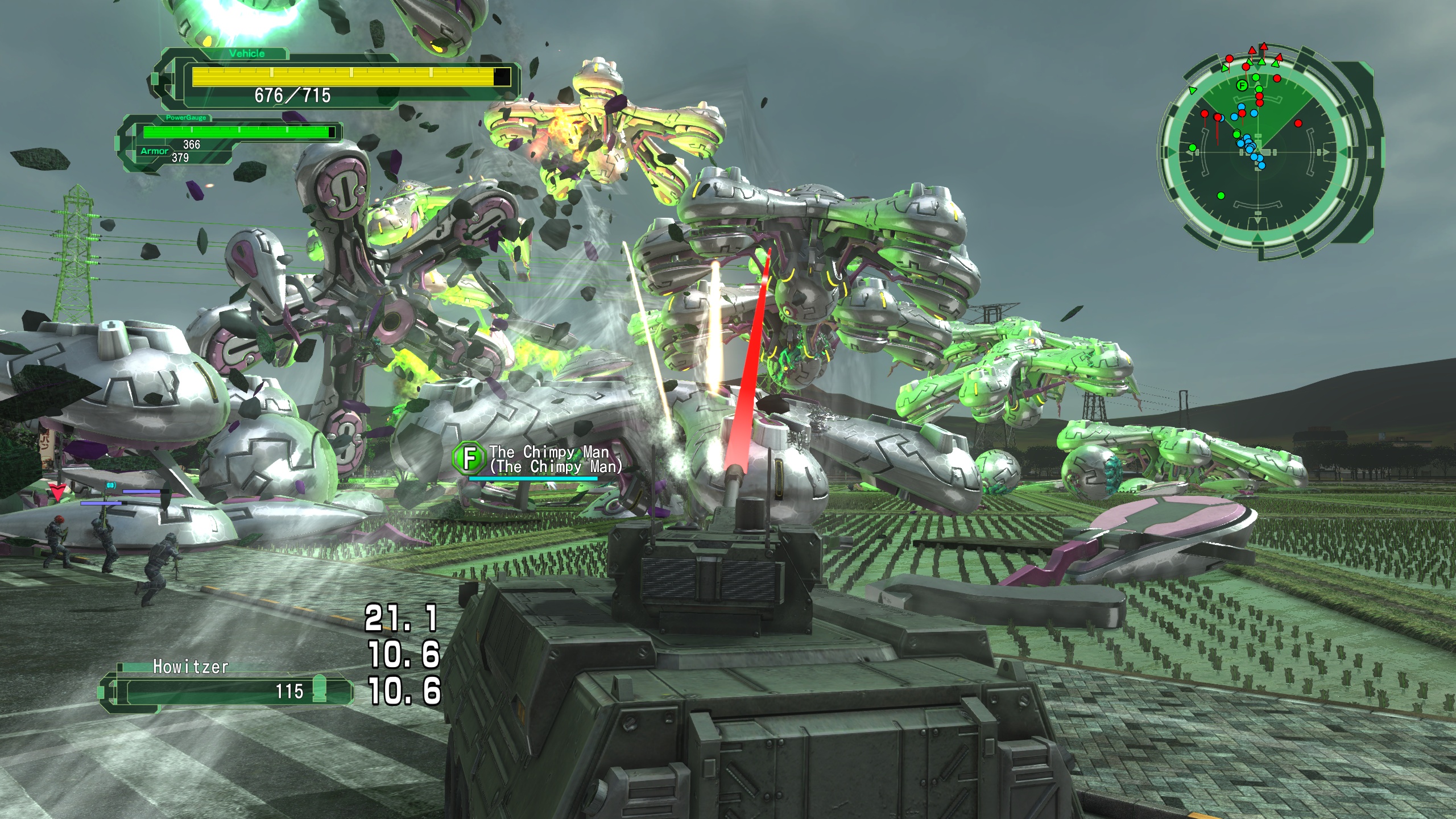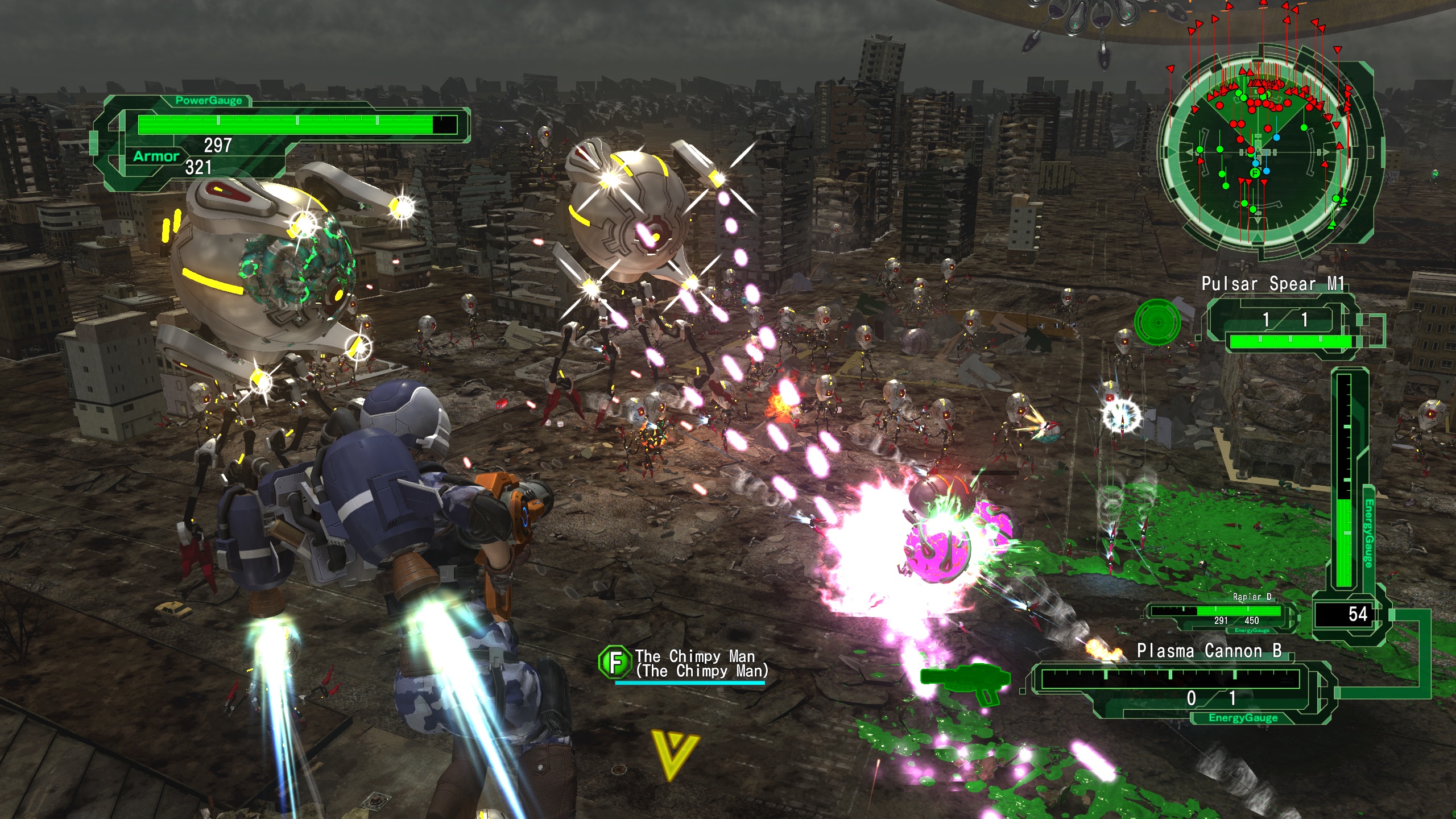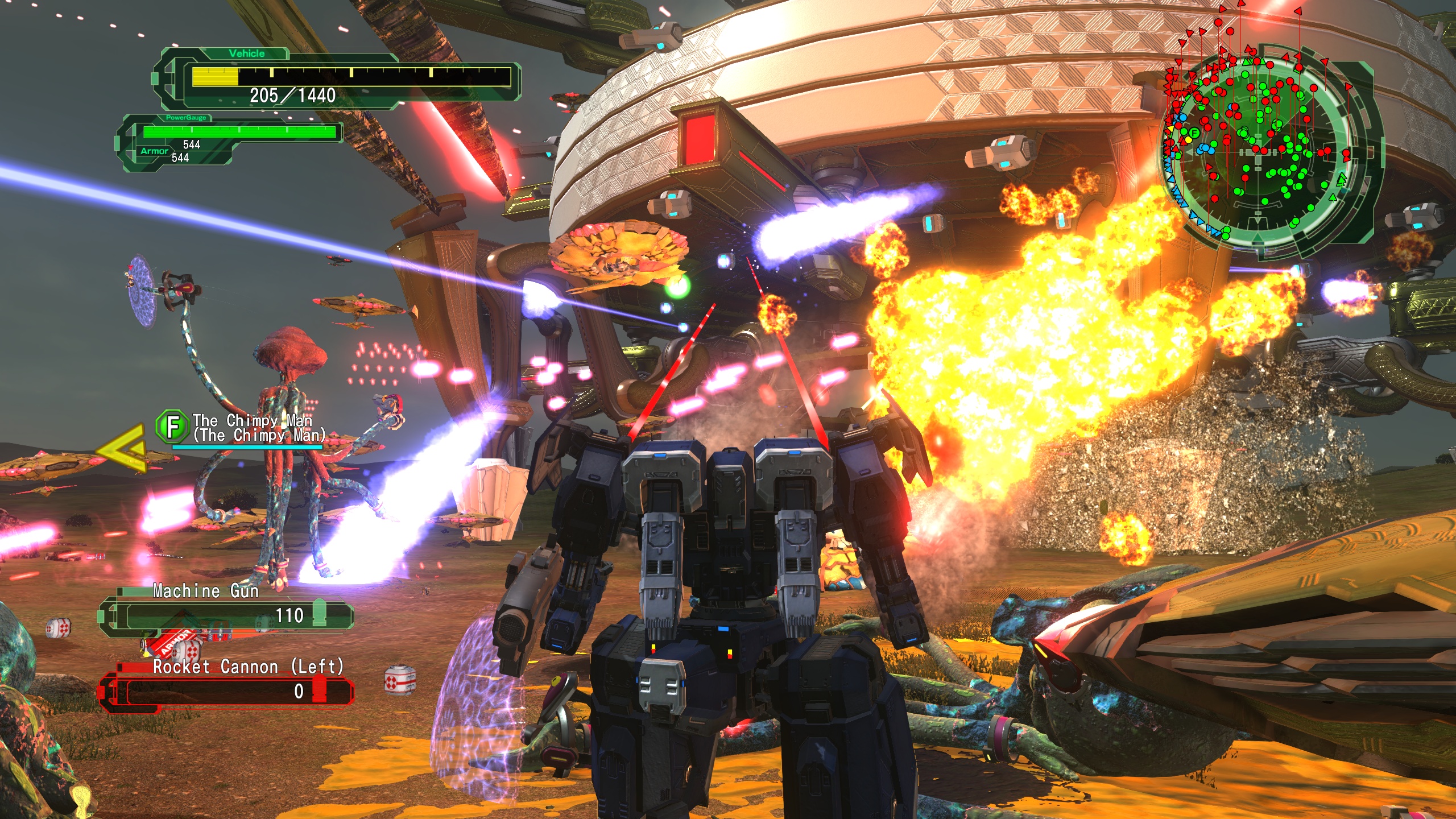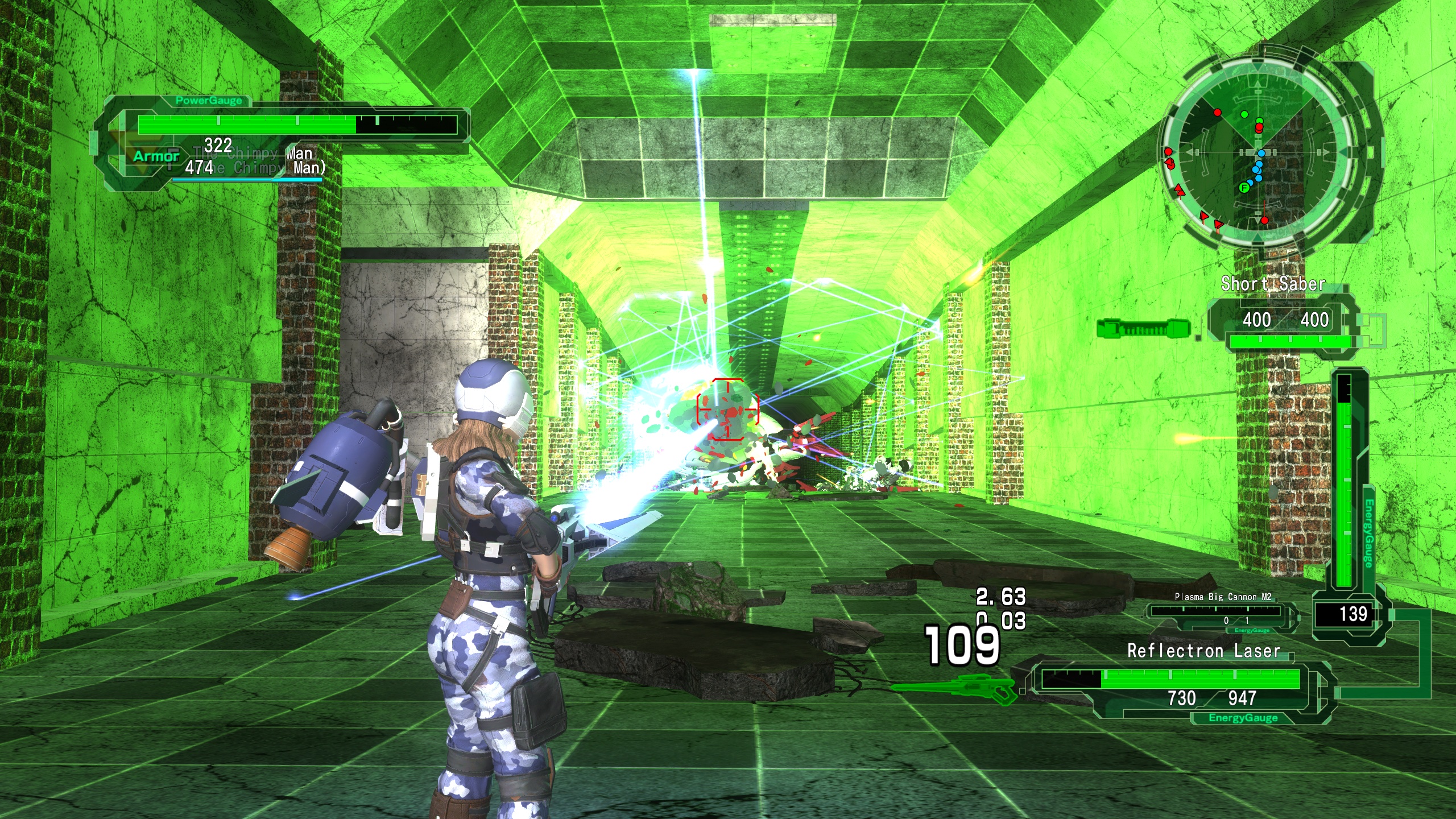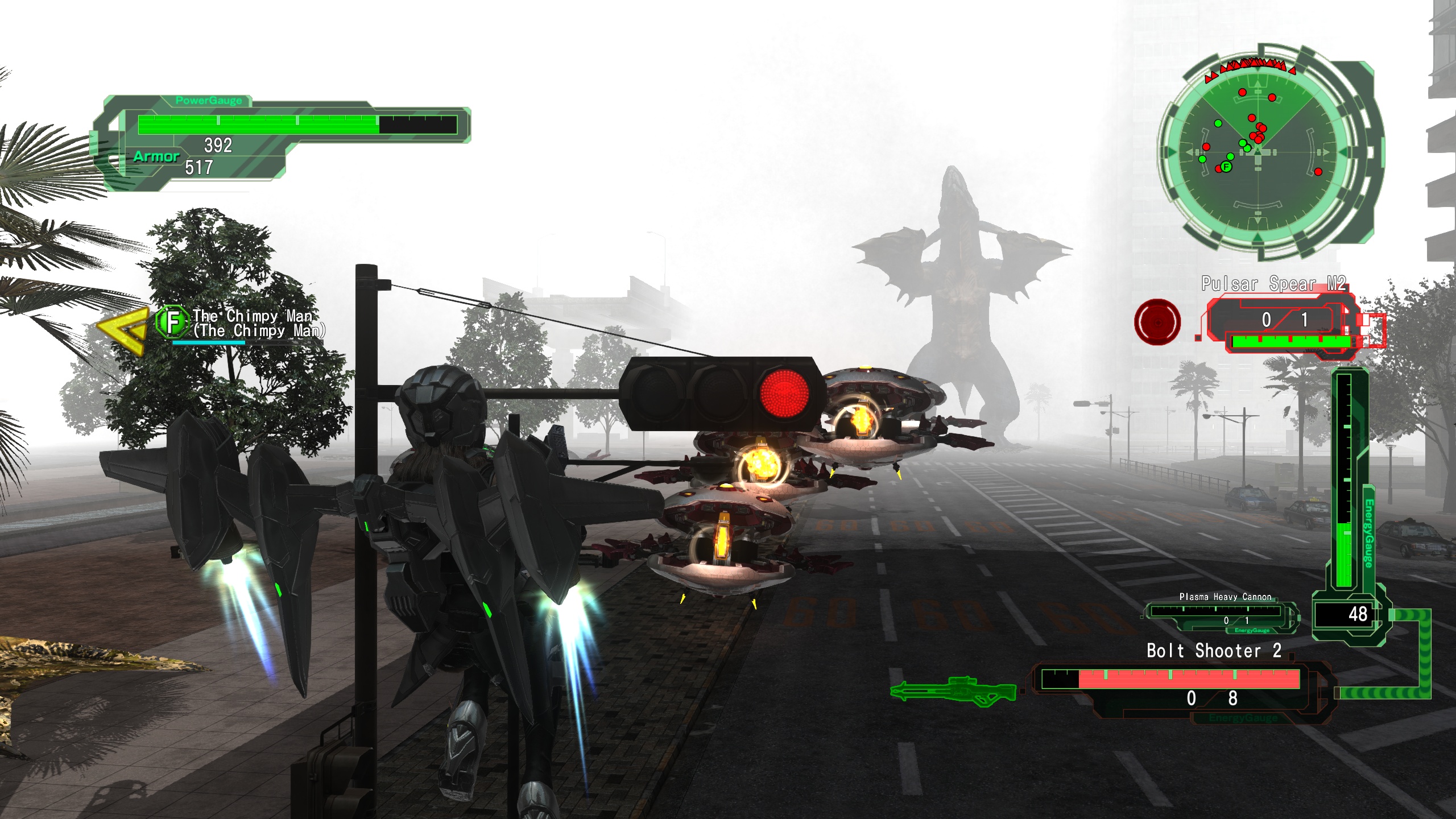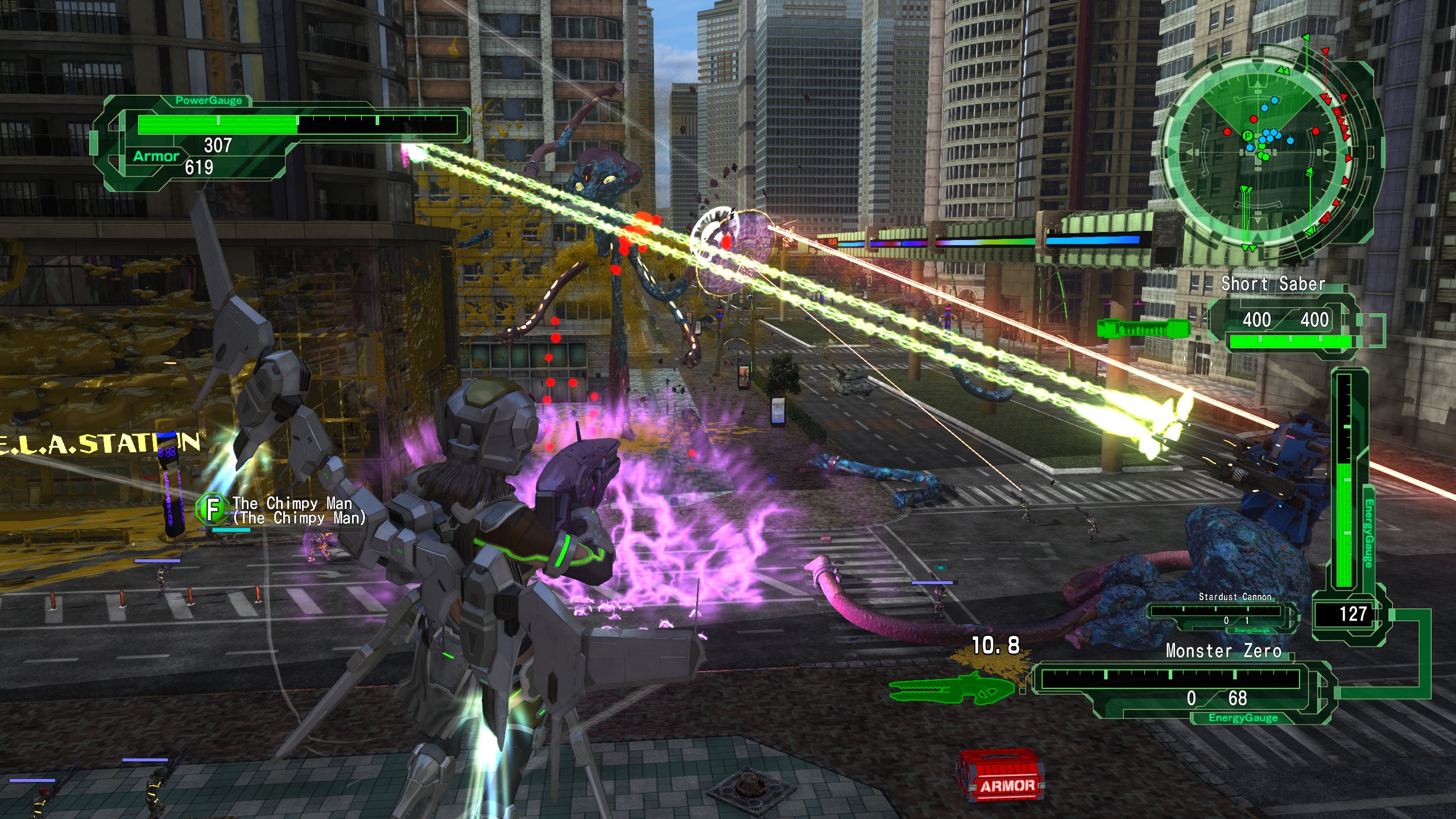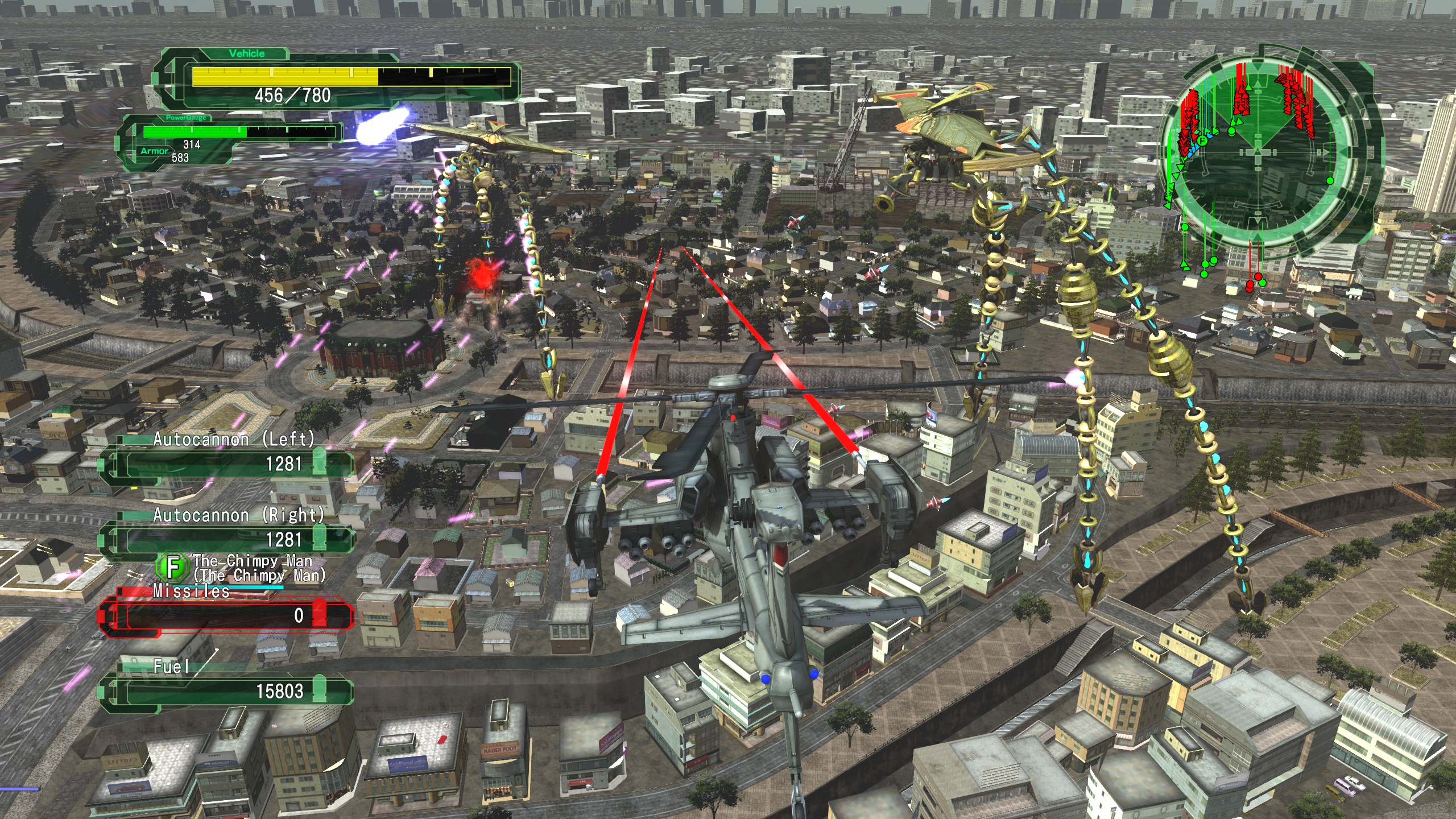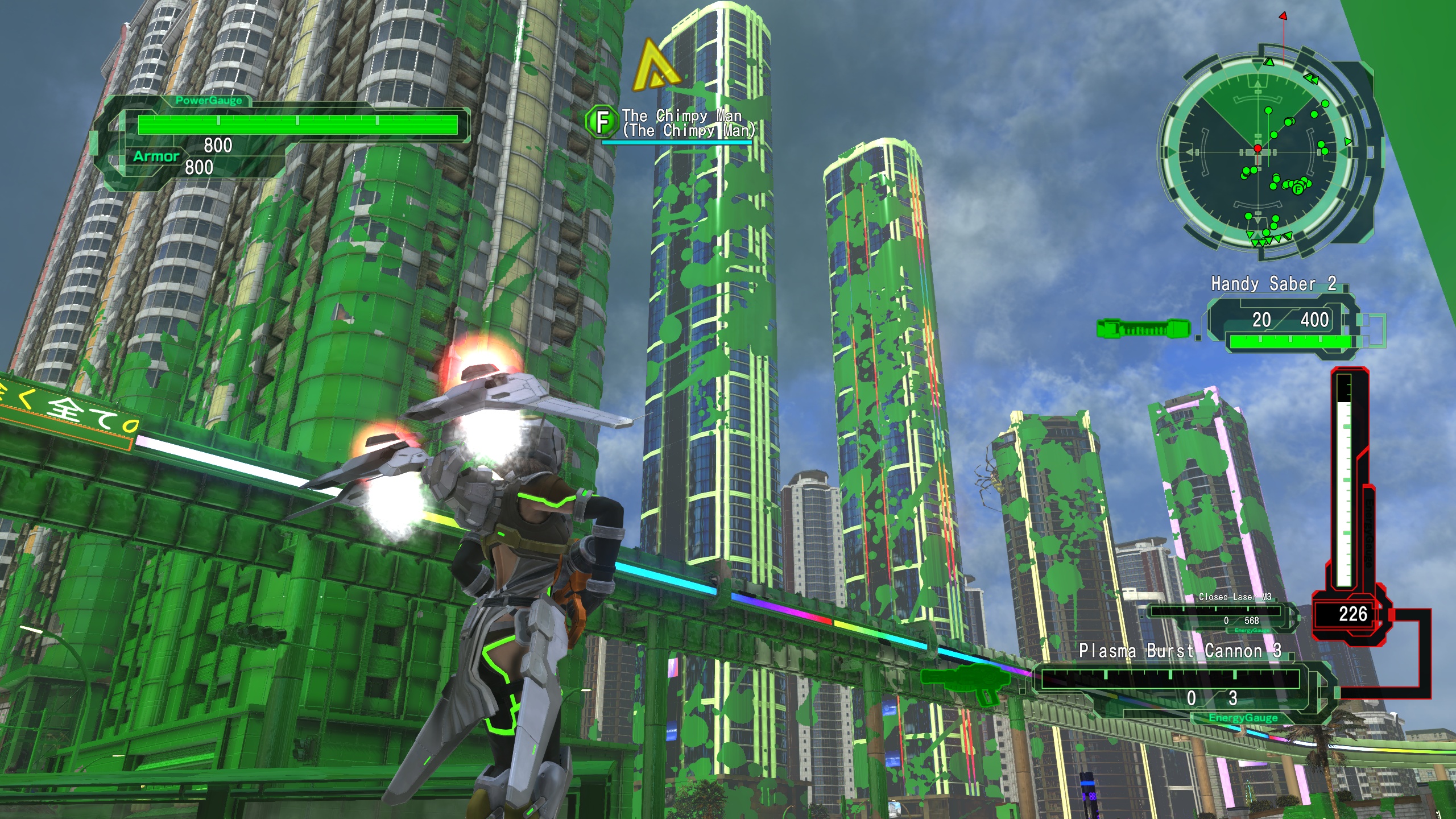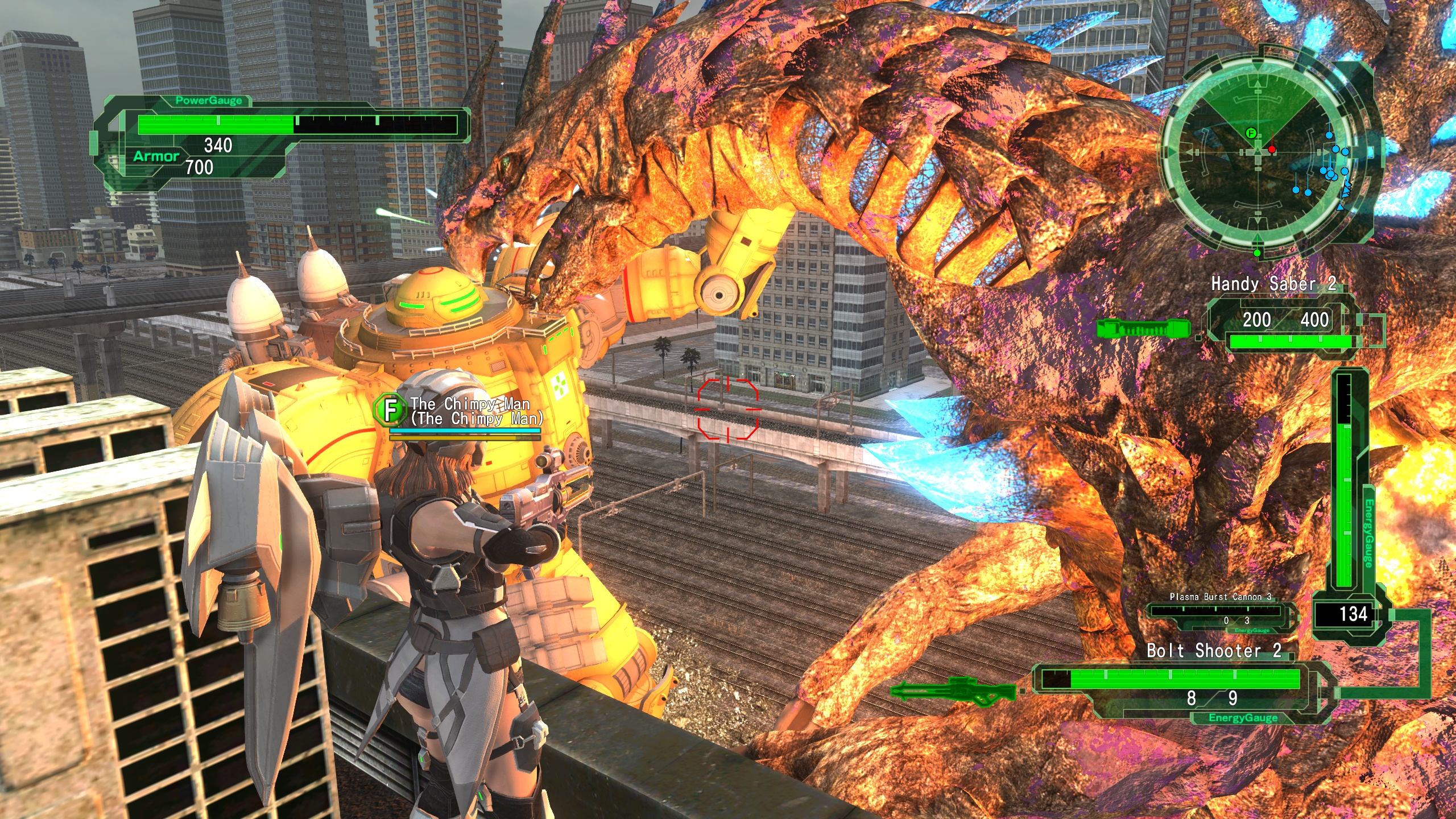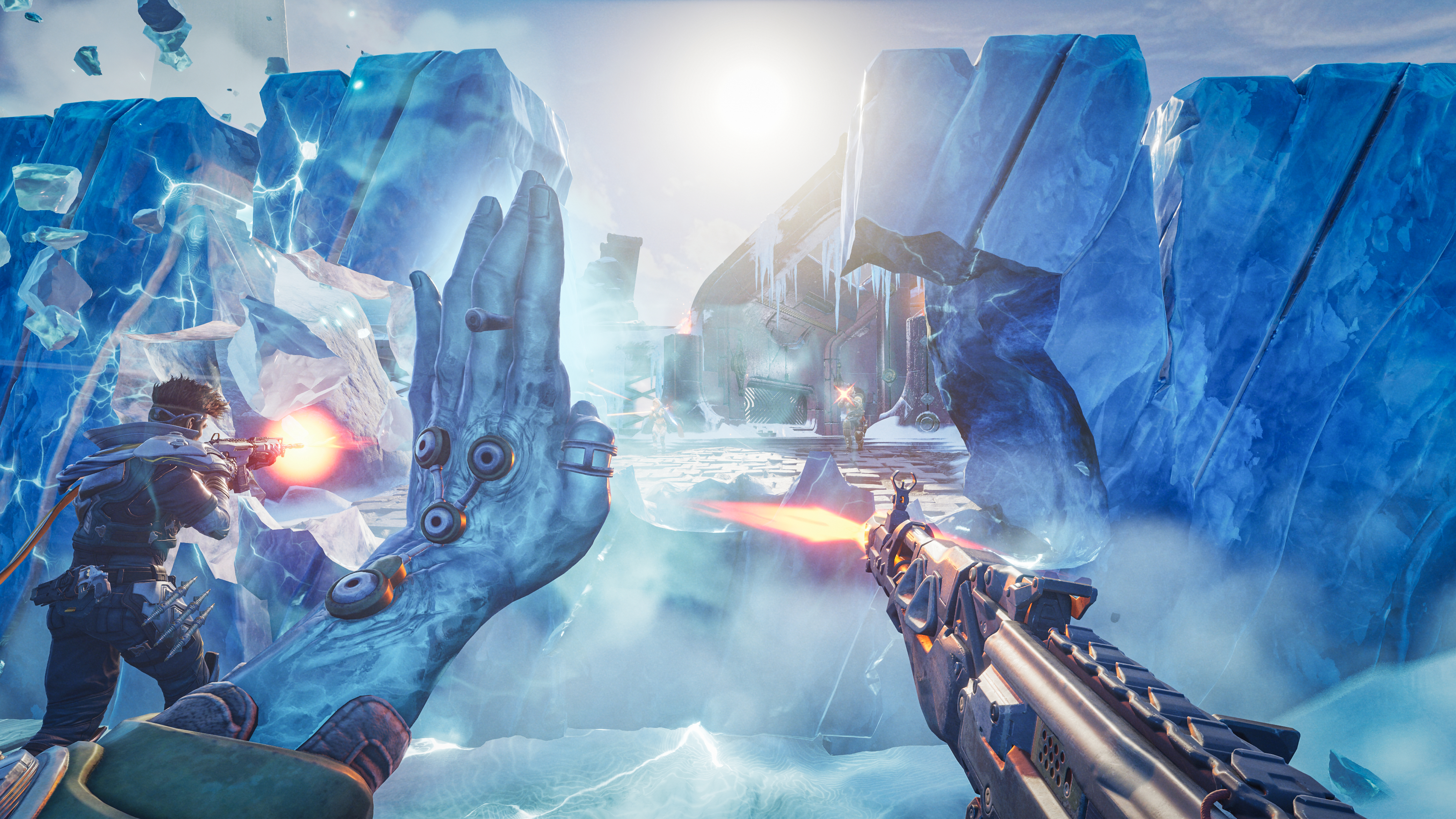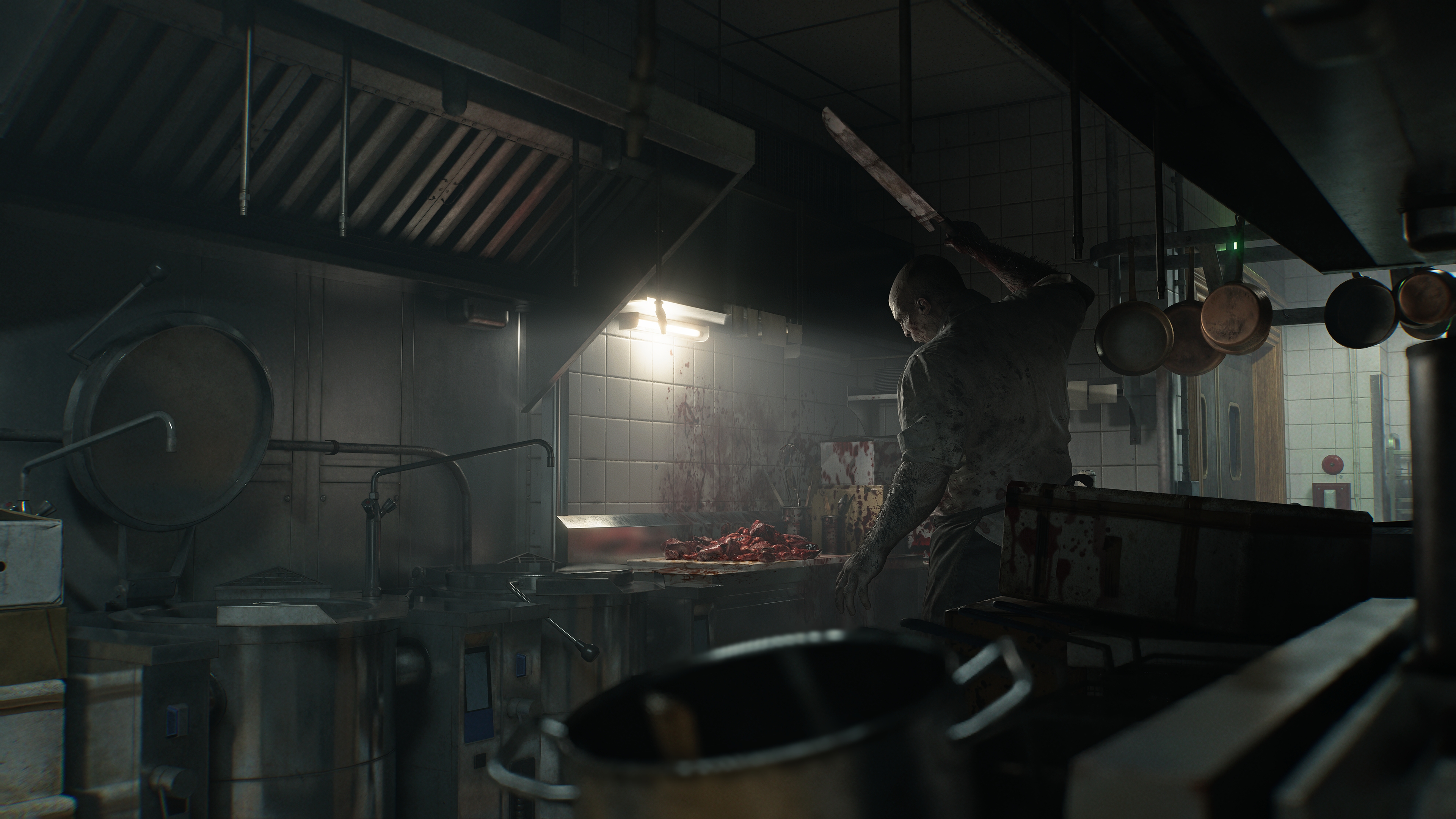Earth Defense Force 6 review
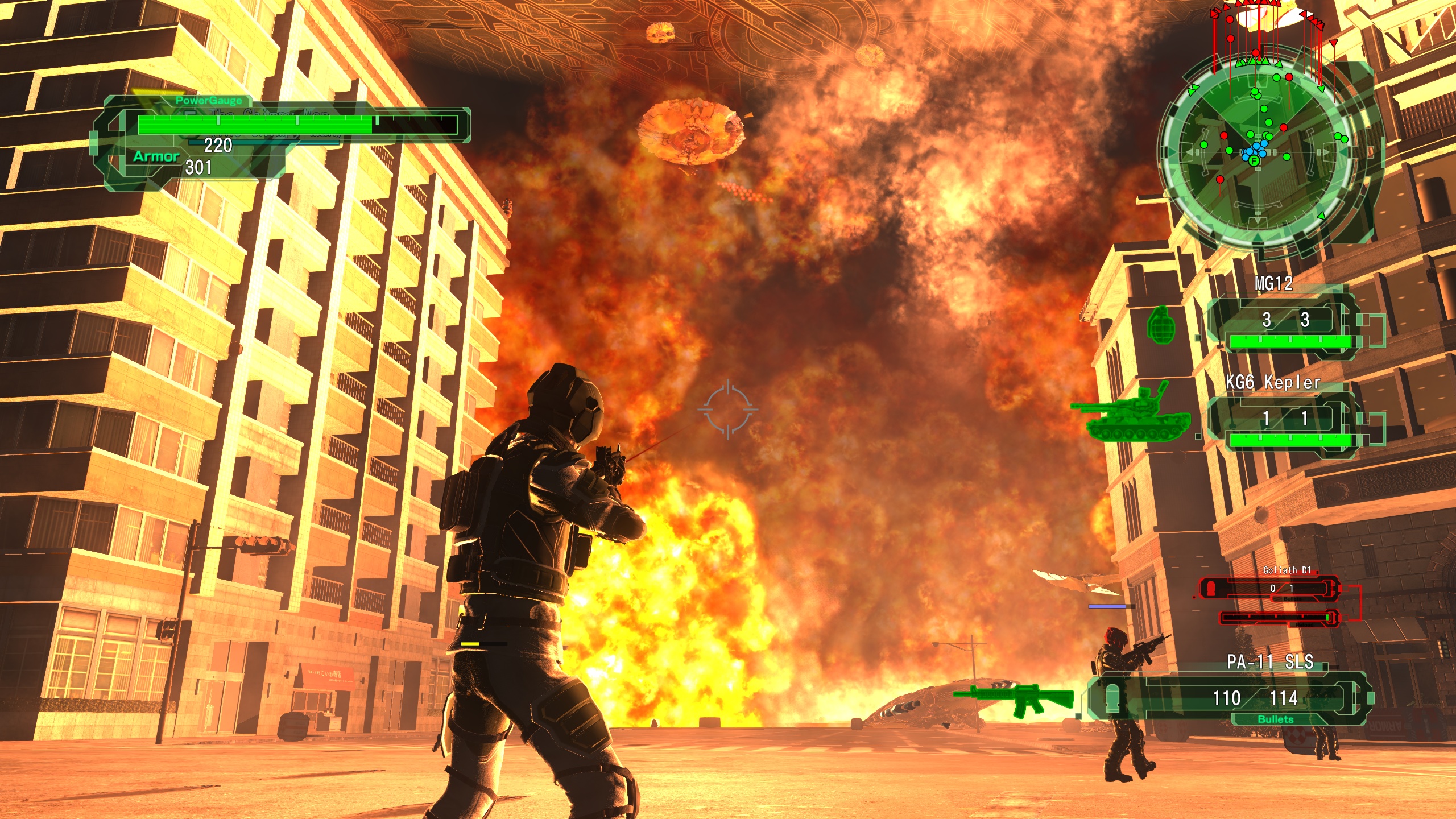
Earth Defense Force 6 is one of the most joyful shooters I’ve played in years, delivering mega-scale slapstick gunfights like nothing else while walking a tightrope-fine line between genius and idiocy in its design. It’s also a janky, rough-hewn piece of software with a mediocre PC port and egregious recycling of assets.
Need to know
What is it? A big, silly class-based B-movie co-op shooter on an enormous scale
Expect to pay £49.99 / $59.99
Developer Sandlot
Publisher D3 Publisher
Reviewed on Windows 11, Nvidia 3070 (Laptop), AMD Ryzen 7 5800H, 16gb DDR5 RAM
Steam Deck Playable
Multiplayer? Online 4-player co-op, 2 players split-screen
Link: Official site
This cult phenomenon of a series began as a budget-priced PS2 experiment. A simple third-person shooter with a retro B-movie theme about a little soldier guy fighting vastly oversized alien ants and wobbly UFOs using guns that can demolish a skyscraper in one hit, or send your own ragdoll body tumbling for half a mile if you get caught in your own blast.
That core remains unchanged, enthusiastically amateur voice acting and all, although EDF now has four classes of soldiers, full online co-op and much more enemy variety. The joy of being a little guy with an impossibly powerful gun fighting hordes so massive and numerous that they blot out the sky remains unchanged, and is only amplified when the game gives you a lumbering Pacific Rim-esque mech and asks you to punch out some skyscraper-sized kaiju.
Deja vu
EDF is to guns as Dynasty Warriors is to swords; pure meathead gaming. You shoot giant aliens, pick up the red and green boxes they drop (slowly increasing your base health and providing random weapon drops), and you repeat, alone or with 1-3 friends. Easy to pick up, but with real tactical nuance. Perhaps not quite Helldivers levels of systemic depth, but each enemy type, pattern of spawns and battlefield demands a different approach and experimenting with hundreds of stockpiled guns.
Whether you’re skeet-shooting UFOs with the world’s biggest sniper rifle or thinning out a hundred giant wasps with artillery, there’s just enough tactical depth and physics-based unpredictability to make the action consistently engaging, especially in co-op where the class-based nature of a squad shines brightest. One player shotgunning giant bugs on the front-lines, while a second jump-jets between rooftops, sniping UFOs. A third dialing in airstrikes to thin out the worst of the horde, and the fourth racing across the map to intercept squads of gun-toting, building-sized frogs before they can become a nuisance.
EDF 6 is fundamentally the same game as 2017’s EDF 5, engine and all. This means that it’s a-not-particularly-pretty PS4 game. The good news is that it runs decently on systems as modest as the Steam Deck, but it won’t be winning any awards for Most Detailed Textures. What EDF lacks in fine detail it makes up for with the biggest gunfights in gaming and some of the best explosions, the light from which illuminates terrain for miles. While PC is the best place to enjoy the game, the menus still feel awkward and poorly worded, and I recommend just not touching the bizarre ‘camera lerp’ slider.
EDF 6 also features most of the same assets and moment-to-moment action as its predecessor. And yet despite being the longest in the series (clocking in at a massive 147 missions – around 35 hours for a trip through ‘normal’ difficulty), it somehow feels less repetitive this time thanks to the power of narrative context. That’s a really weird thing to say about an EDF game, but bear with me.
Let’s do the time warp again
EDF 6 picks after EDF 5’s finale, a spectacular but pyrrhic victory against the aliens and their giant shiny god-emperor. The first handful of missions have you and a ragtag bunch of wasteland survivors hunting down alien remnants, before the invaders play their trump card: Time travel. One moment, the aliens are hopping through a portal to the past, the next you’re in an even more doomed timeline where humans are being hunted by wobbly giant robots—a whole new threat. So it’s off to the past (that is, EDF 5 again) to one-up the aliens and break their new toys.
And that’s the trick. The budget-saving re-use somehow works as it’s all framed as an escalating game of temporal one-upmanship. The aliens send some new threat to the past, and you go back to kick its ass across an abridged version of EDF 5’s campaign remixed with new dialogue, enemies and twists. Every time it feels like the game has wrung everything it can out of its current set of scenarios and enemies everything resets, the aliens go back to mess up the timeline more, and you go back again to save mankind from being stomped. Each time, the NPC battle chatter grows increasingly amazed at this alien-slaying prodigy who seems to know exactly how to win.
It works in perfect harmony with EDF’s progression loop, as you slowly grow more resilient, collect new guns and vehicles and deploy them against ever-escalating threats. Each new set of enemies mixes up the game’s flow. The robots swarm like ants but have trickier hitboxes (thanks to their wire-thin limbs) and like to throw rocket-punches from awkward angles and heights.
Later it introduces the Kruul, 10-meter-tall octopoid soldiers (like the Martians from Metal Slug, but huge) that can wield two guns and two energy shields at once, their physics-driven noodly limbs and weird hyper-reactive bullet-blocking AI making them feel properly alien. Then come giant, incredibly tanky fish-men that hide in Silent Hill-esque fog, lunging out of it and forcing you back with poison gas. Each forces new tactics, and a constantly shifting loadout.
Everything old is new again
EDF6 never gets stuck in its predecessor’s grind through too many samey missions. Each time loop feels like a fresh escalation, resetting the pacing and scale of battles for a while, introducing new threats, building to a spectacular climax and then doing it all again. It ends up feeling less like a regular EDF sequel and more like four or five smaller ones played back-to-back.
The time travel angle does mean that players that start with EDF 6 may not fully appreciate some of the story beats and twists along the way (and some are brilliantly cathartic if you’ve played EDF 5), but the refined campaign structure makes this the best entry to the series yet. Normal mode was a fun warmup, but I’ve still barely touched the higher difficulties (three of them) bringing faster combat, a new arsenal of weapons to play with and sometimes remixed missions with trickier enemy spawns. 35 hours was just enough to shake off the rust. The EDF deploys.

